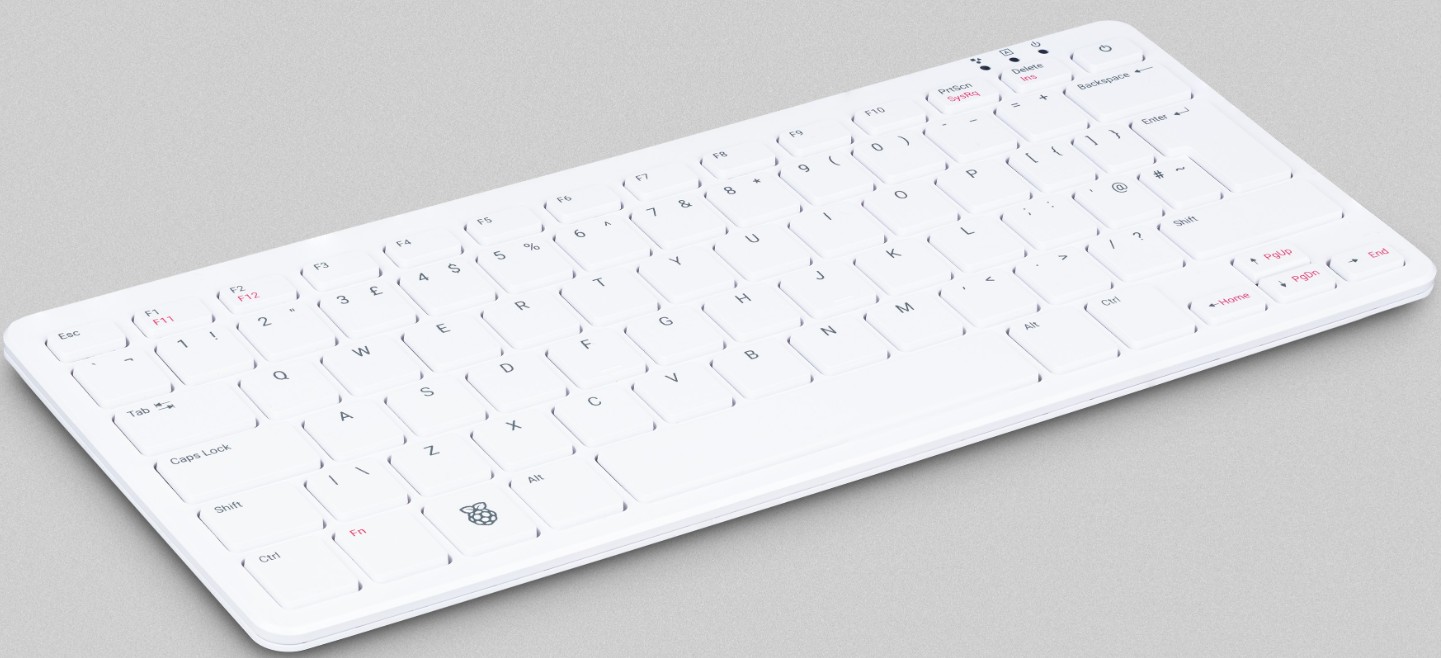This website uses cookies to enhance the user experience.
The Raspberry Foundation unveils its Pi 500
Tue Dec 10 2024
The Raspberry Foundation unveils its Pi 500
You don't change a winning team! Following on from the success of the Pi 400, launched shortly after the Pi 4, the Raspberry Foundation has announced the imminent arrival of a new microcomputer with an integrated keyboard: the Pi 500.
A familiar architecture
As you might expect, the Pi 500 is based on the same architecture as the Raspberry Pi 5. So you'll find the same features and performance as the latter, released just over a year ago.
If you're new to this range, the Pi X00 models are personal computers built into a keyboard. All you need to do is add a mouse (optional but recommended), a screen and install an operating system (Linux, Recalbox, etc.), just like on a Pi 5.
Improved performance
Like the Pi 5 and the Pi 4, the Pi 500, equipped with 8 GB RAM, outperforms the Pi 400 thanks to its Quad-core Arm Cortex-A76 64-bit processor running at 2.4 GHz and its updated GPU VideoCore VII.
Connectivity and features
The Pi 500 offers everything you'd expect from a modern microcomputer for everyday use:
- Dual-band Wi-Fi** (2.4 GHz and 5 GHz)
- Bluetooth 5.0
- 2 USB 3.0** ports and 1 USB 2.0** port
- Ethernet port** for wired connection
- 2 micro HDMI** ports, allowing two screens to be connected simultaneously
- micro SD port** SDR104 compatible
- 40-pin GPIO **Header

Design and layout
The Pi 500's keyboard incorporates a one-piece aluminium heat sink, guaranteeing passive cooling. This may come as a surprise in the absence of a fan, but it's justified by the extra space inside the keyboard, reducing the overheating common to components. The result is total silence, even during intensive use.
In terms of dimensions, the Pi 500 remains faithful to the Pi 400: 286 mm × 122 mm × 23 mm. As a practical addition, a power button is now integrated into the top right-hand corner of the keyboard.
Availability and price
Pre-orders are now open on the Kubii website, where the Pi 500 is priced at €112.80. Please note, however, that this price does not include the power supply, micro HDMI to HDMI cable or mouse.
To benefit from these accessories, you'll need to opt for the Pi 500 Kit at a price of €144. As usual, we recommend investing in the official power supply for the best possible experience.
Recalbox compatibility
For all you retrogaming fans out there, we'll keep you posted in due course on Recalbox compatibility, as the announcement was made only recently and no tests have yet been carried out. On the assumption that Recalbox was easily ported to the Pi 400, the same should apply to the Pi 500, which follows the same architecture as the Raspberry Pi 5. Stay tuned! 😉
